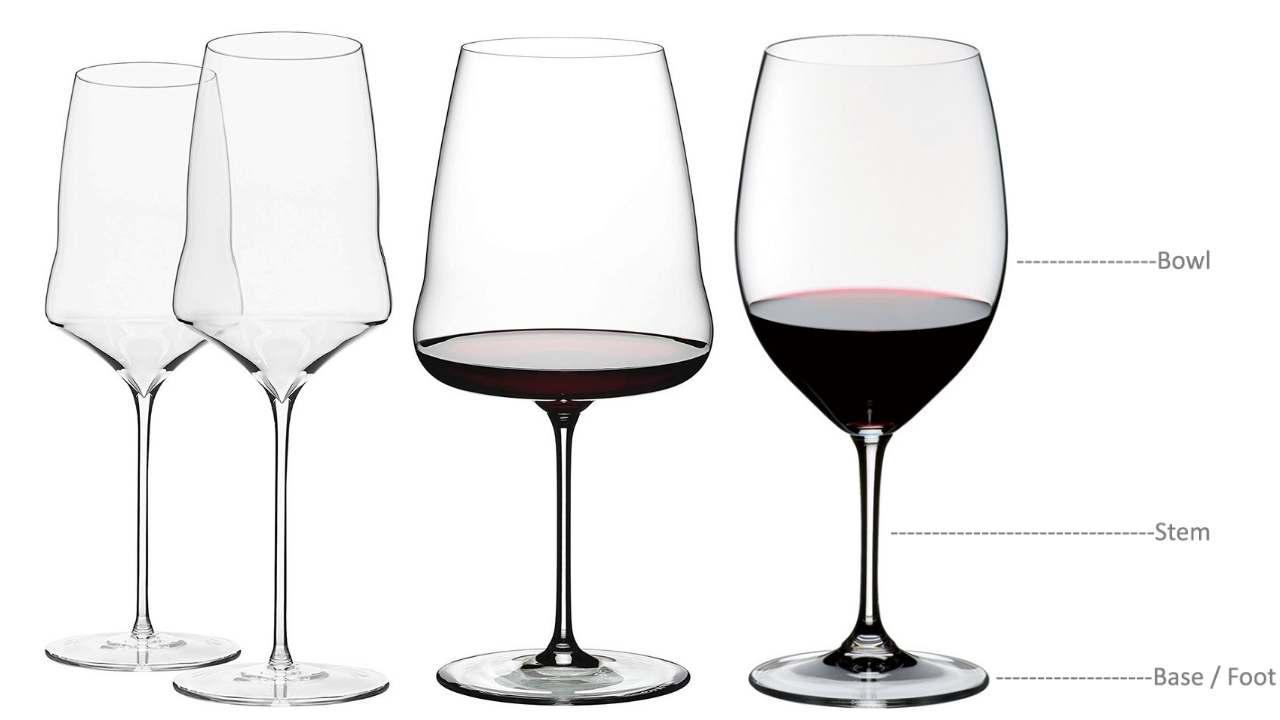What Is Natural Wine and Organic Wine | Are They Better For You?
The latest movement in wine is all about health and mindfulness; I am of course talking about natural wine and organic wine. But what exactly is natural wine and is it better for you?
They sure do sound healthy, at the very least they sound like the better option. But how much is that true? I mean, natural cocaine isn’t healthier than paracetamol just because it’s got ‘natural’ in the name...
I’ve previously covered regular wine and the health benefits of it. Now seems like a good time to compare that with natural and organic wine.
So let’s dig into the subject and answer your burning questions on just how good for you or not good for you natural and organic wine is.
Natural Wine vs Organic
Are Natural Wine’s and Organic Wine’s the same thing?
First and foremost, we’re seeing a lot about ‘organic’ this and ‘natural’ that. So what’s the difference? Is there a difference? Are they just buzzwords to make wine relevant in a more health and wellbeing focused world?
The answer is no. Natural wine and Organic wine are not the same thing.
What is the difference between Natural and Organic Wine?
What is Organic wine
Organic wine is all about the vineyard. Much like an organic apple orchids or any likewise organic farm, no pesticides, synthetic fertilisers, herbicides or other artificial chemicals would be used to grow the grapes. Just good old fashioned care, passion and prayers.
It is important to note however, the process isn’t completely chemical-free; it does employ organic chemicals and treatments.
Once the grapes are grown and picked organically, the rest of the process is basically the same as regular wine making. Engineered yeast, sulphites, fining agents, preservatives and additives will still be used to treat the wine in the fermentation and bottling process.
When you have an organic wine, what you’re basically getting is a wine that has organically and ethically grown grapes.
So… What is Natural wine
Natural wine is both about the vineyard and the winery. It’s not just about natural grapes, it’s also about natural wine making. Little to no artificial preservatives will be used throughout the entire process. That’s why organic wines look pretty much the same as regular wine, whilst natural wine can look and taste vastly different. Notably in the cloudiness and sediment inside your bottle, due to the fact chemicals haven’t been added to clarify the wine and that is what natural wine is.
Once again, it's important to note additives and chemicals can still be added to natural wine.
Natural Wine vs Regular Wine
Regular wine
So now we know the process of natural wine. let's just cover some of the process of making regular wine so you can understand the difference between regular wine and natural wine. A lot of us are already familiar with this process but just to briefly some up; You grow grapes suited to your location, be it pinot noir, merlot or what have you, that growing takes place on a vineyard, which is basically a grape farm.
Next up those grapes are picked and sent off to a winery to be fermented, blended and bottled up. The winery might be on the vineyard or be a totally different place and company. At the end of the process, you have wine.
But it’s a lot more complicated than that. Throughout the growing of these grapes, a lot of chemicals and procedures are used to create the highest yield of the best tasting grapes possible. Then in the winery, a lot of the same thing is done, from the use of filtration and fining agents, preservatives and scientifically engineered yeast strains.
It’s a lot of craft and artistry that goes into wine making, but it’s also a lot of science and technical skill.
Is Organic Wine Better for You
With all that being said. The low down is that yes, there are big differences between organic and natural wine and if you’re wondering which is healthier, the answer is always going to be natural wine. Especially on the surface anyway.
Hoooooowever, regulations within wine making change from region to region. So it’s hard to pin down what exactly the rules are to call something organic or natural. More so, Natural wine basically has no rules at all. You can use all the additives and chemicals you want, leave out fining agents to have a cloudier ‘natural wine looking’ liquid and call it natural. You could use all the chemicals and additives you can get your hands on and just called the brand ‘natural wine’.
Don’t Believe the Buzzwords
Just because the label says it's natural wine, it doesn’t necessarily mean you are getting a natural product. It’s just an unregulated word. Today, natural wine demands a higher price than regular wine due to the fact that it's usually made in smaller batches to avoid spoilage. So if you were a winemaker, and you could demand a higher price just for sticking natural on the bottle and you didn't have to really change the process at all, wouldn’t you just do it?
Not the most ethical of ideas but hey, business is business.
That’s not to say all wine makers are doing this. To truly know if your natural wine is indeed natural, you have to research the producer of that wine, which will be listed on the back label alongside the distributor.
This is where terms like ‘low intervention’ wine comes into play.
What is Low Intervention Wine
Low intervention wine is practically the exact same thing as natural wine. It’s more to do with what the producer wants to stick on the label. They both mean the same thing. As mentioned above, natural wine doesn't always mean natural. Chemicals and sulphites are still added, so ‘low intervention’ is basically the producer saying, “look, we have cut out what chemicals we can, we had to leave some in for preservation, to control the wine and make sure no nastiest get in, this is better for you than regular wine but it doesn’t mean it's completely natural, we tried letting nature do its work and intervened the least we could, hence, low intervention’
It’s like an honest tag, low intervention doesn’t sound as healthy as natural, but it's the more honest label to go with in the majority of cases. 100% natural wine is difficult to make, you could easily spoil the whole batch of wine or ruin the flavour at the drop of a hat. It takes a lot of skill, a lot of care and a lot of cleanliness.
Health benefits of red wine
Just because regular wine involves a plethora of chemicals and additives, does not mean it's bad. Don’t be scared of the word additive, it's not as bad as people would have you believe. Sure, it's a lot healthier to fill your body with natural ingredients rather than chemicals you can’t pronounce, but a lot of these chemicals are there for a good reason. Preservatives are great because they protect our food and drinks.
The last thing you want is to crack open a bottle of wine and have it either taste horrible because unfriendly bacteria has ruined it or even worse, you die because of some deadly bacteria growth. Preservatives stop that from happening, so don’t be scared of them. It’s scientific genius.
Furthermore, red wine itself has its benefits. Check out my article on the major benefits to red wine and how it helps everything from your memory and weight loss to mood boosting and sex drive. You’d be surprised at just how healthy red wine can be.
The major benefits to red wine is thanks to a little natural phenol called resveratrol. Which is something I’ve covered a lot here on Smartblend. Like in my article on Resveratrol Benefits in Red Wine and Benefits of Resveratrol Supplements article.
It’s also something mentioned quite a bit in the health benefits to red wine article.
The interesting thing is that resveratrol is found in grape skins, meaning it’s only in red wine. Which is why red wine is considered healthier than white wine. So here's a query for you; If red wine is healthy because of resveratrol, and natural wine is healthy because of the low intervention. Which Is healthier, regular red wine or natural white wine? At the very least, which is better for you?
Unfortunately there just hasn't been much of any research into this so you have to figure that one out yourself. Personally, having looked into both natural and red wine health benefits, I’d say regular red wine is the better option over organic or natural white wine. Purely due to resveratrol. Of course you could just get the best of both and drink natural red wine…
Are Natural Wine and Organic Wine better for you than Regular Wine?
So the main question here is are natural wines and organic wines generally better for you than regular wines, and the answer is yes. But by how much, that's another story.
Final Notes
The benefits are not that great that you should consider solely drinking natural wine. The true major differences are in flavour. Natural wine has a yeasty, more earthy and acidic flavour, whilst regular wine is more refined and consistent. So drink whichever wine you prefer the taste off.
If you’re feeling funky, have a natural wine, you’re more likely to find funky flavours, if you just want something easy to sip, go for a regular wine. Don’t focus too much on the health benefits or '“which is better” but if you must focus on the healthier bits, then ignore the labelling buzzwords, forget about natural this and organic that, just pick up a red wine.

















The ultimate summer drink perfect for pool parties, garden parties and getting the Holiday started - The White Peach Sangria. Here is everything you need to know about making the BEST EVER sangria with tips and tricks for mixing at home.